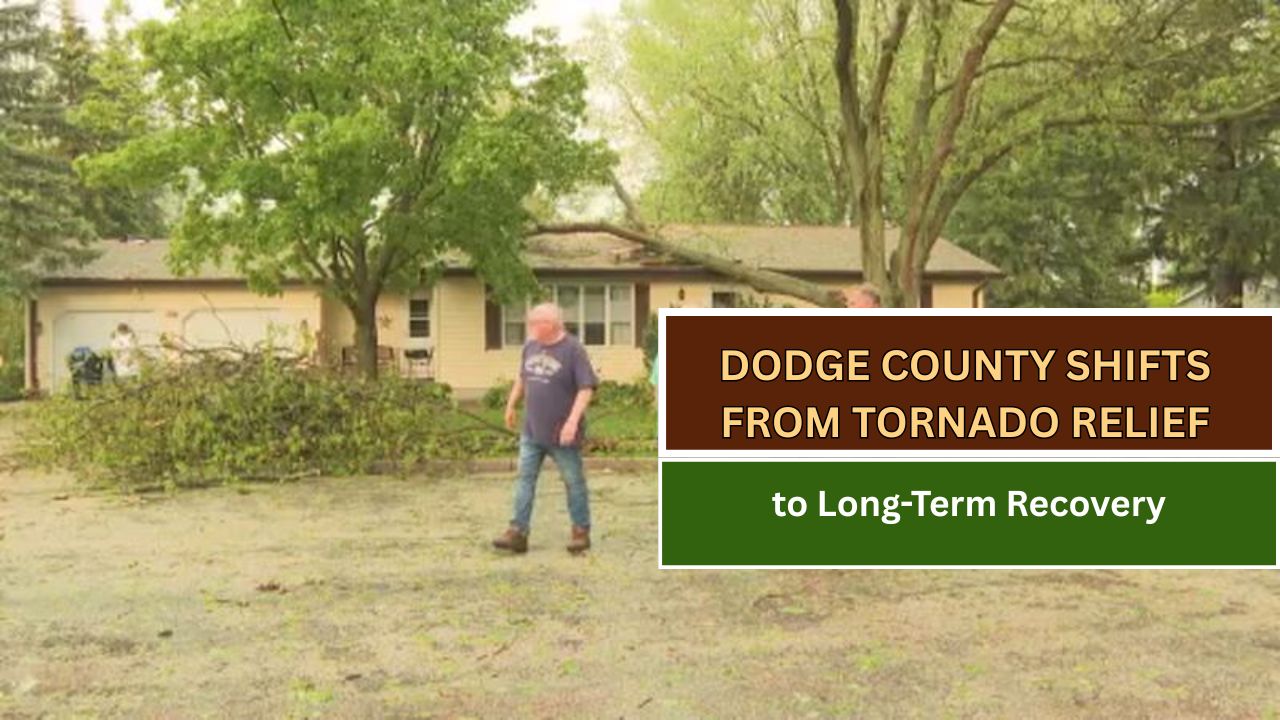DODGE COUNTY, Wis. (WMTV) – The tornadoes have passed, but recovery in Dodge County is just getting started.
Three days after four tornadoes ripped through the region, local agencies and organizations like The Salvation Army are moving from emergency response to long-term recovery. And they say they’ll need plenty of help along the way.
The storms—two EF-2s and two EF-1s—hit on the evening of May 15, with wind speeds reaching up to 120 miles per hour. Dozens of homes and properties in Mayville, Juneau, and surrounding areas suffered heavy damage, prompting swift action from emergency crews, volunteers, and relief organizations.
“You know that the first thing is kind of the response mode, right?” said Benedict of The Salvation Army. “That’s that first thing — we respond, and nobody knows exactly all the details just yet. But… that first weekend after a disaster, especially like a tornado, can be a very high traffic area.”
Benedict noted that right after the storm, people from nearby towns, family members, and volunteers quickly poured into affected communities to help.
From Hydration to Long-Term Support
During those first few days, The Salvation Army focused on hydrating, feeding, and supporting anyone in need—residents, utility workers, and first responders alike.
“People don’t want to stop. Luckily, the weather was kind of cooperative—it wasn’t 90 degrees,” Benedict said. “That could have made hydration a critical need. We made sure everyone—residents, first responders, utility crews—had water and food.”
Teams were deployed across Mayville and Juneau, locating pockets of people still digging through the aftermath. Now, with the emergency phase over, the focus is shifting to longer-term issues—what Benedict calls the “unmet needs” phase.
“If we have maybe some senior citizens who don’t have anyone to help with debris or need assistance, we can possibly step in,” he said. “Sometimes we can’t fulfill every mission, but we get calls from police, fire, or emergency managers saying someone needs help.”
All Donations Stay Local
Benedict emphasized that 100% of donations received for a disaster stay with that disaster, though he doesn’t yet know how much funding has come in.
Volunteers Needed for Every Role
Now more than ever, Benedict is asking for volunteers—not just for physical cleanup, but also for education, outreach, and behind-the-scenes support.
“I’m looking for volunteers who have teaching skills, who’d like to help with disaster training and write curriculum,” he said. “And we always need people for feeding, hydration, and logistical work.”
Those interested in helping can find more information through The Salvation Army’s website and volunteer hub, where updates on recovery efforts and volunteer opportunities are regularly posted.
This article has been carefully fact-checked by our editorial team to ensure accuracy and eliminate any misleading information. We are committed to maintaining the highest standards of integrity in our content.

Outside of work, he enjoys playing chess, following cricket, and writing short stories. His commitment to integrity and in-depth analysis strengthens OTE News’ mission of providing trustworthy journalism.



